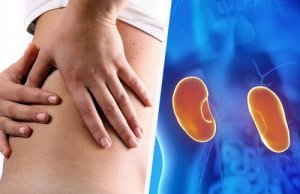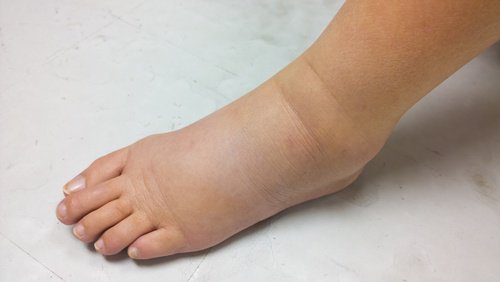7 Warning Signs of Kidney Disease

Your kidneys are the organs that are located behind your abdomen, parallel to your spine. Their proper function plays a very important role in overall health, as they’re responsible for keeping your electrolyte levels, blood pressure, and fluids in check.
Just like with other systems of the body, your kidneys run a constant risk of infection and kidney disease.
While they are not as common, the problem is that there typically aren’t symptoms during the early stages of kidney disease. For this, it makes them difficult to diagnose. The only way you can accurately identify them is through medical tests of the blood and urine. However, there are some physical signs that could also alert you to the development of an abnormality.
Below, we describe seven of the most common warning signs of kidney disease. So, don’t hesitate to consult your doctor if you experience them.
1. Excessive fatigue as a sign of kidney disease

Chronic fatigue results when your body has difficulty transporting oxygen to your cells through the bloodstream, which can occur due to a developing problem with your kidneys.
Your kidneys play an important role in the production of red blood cells, and when they deteriorate, they don’t produce enough of them. When your body has short red blood cell supply, it can lead to anemia( we’ll talk more about this later. This is important because if your body needs the red blood cells to transport oxygen to the rest of the body to give you energy.
If there is a short amount of red blood cells, it means a shortage of energy as well.
See also: 5 home remedies for fatigue
2. Itchy skin
Your kidneys eliminate many of the toxins found in your bloodstream through the urine. When they malfunction, wastes build up in the tissues and it’s normal to feel itching or tingling sensation under the skin. The official name of this is Pruritus and can occur in up to 40% of people who have kidney disease.
3. Edema

This symptom can also arise when you have a substantial loss of protein in the urine, a condition known as nephrotic syndrome. Inflammation is usually concentrated in the feet and ankles, but it can sometimes occur in the arms, face, and other body parts.
4. Anemia
Symptoms of anemia in patients may indicate that kidney disease is entering the more severe stages. Your kidneys are responsible for producing a hormone known as erythropoietin. Furthermore, this hormone is what tells your bone marrow to produce blood cells.
Because their function can be compromised in severe cases of renal failure, your red blood cell count will decrease dramatically, causing chronic anemia.
5. Back pain

Pain in the lower back or side could signal potential kidney disease, especially in elderly patients. While it’s not a very common symptom, it could occur when kidney stones or a urinary tract infection are present. If this occurs, the disease is usually very advanced and accompanied by other symptoms, such as difficulty urinating or a burning sensation.
It’s important to distinguish this symptom from muscle pain because it could probably be key to early detection of a serious condition.
6. Changes in the urine
Knowing how to recognize urine from healthy kidneys is critical to identifying the warning signs of kidney problems.
When your kidneys begin to fail, the following may occur:
- You have a stronger urge to urinate in the middle of the night.
- Your urine is foamy or bubbly in appearance.
- Your urine takes on a dark color and has a foul smell.
- You produce more urine, with a very pale color.
- You have difficulty urinating more than four times a day.
- Urinary incontinence.
- You notice blood in your urine.
Visit this article: Why do I always have to pee?
7. Bad breath

Breath that smells of ammonia and a metallic taste in the mouth could occur due to the accumulation of toxins in your bloodstream when your kidneys fail. This unpleasant symptom is difficult to control, even if you have good oral hygiene habits.
Although all of the above symptoms can be precipitated by multiple causes, it’s worth checking to see if the origin could be kidney disease. Talk to your doctor if you’re concerned and request that they perform the appropriate tests to ensure all is well.
All cited sources were thoroughly reviewed by our team to ensure their quality, reliability, currency, and validity. The bibliography of this article was considered reliable and of academic or scientific accuracy.
- Borrego, R. J., and Montero, C. O. (2003). Nefrología: Fundamentos de medicina. Madrid: Corporación para Investigaciones Biológicas, p. 340.
- Goldman, L., and Braunwald, E. (2000). “Edemas”, Cardiología en atención primaria. Boston: Harcourt, pp. 114-117.
- Jelkmann, W. (2007). “Erythropoietin after a century of research: younger than ever”, Eur. J. Haematol., 78 (3): 183-205.
This text is provided for informational purposes only and does not replace consultation with a professional. If in doubt, consult your specialist.








